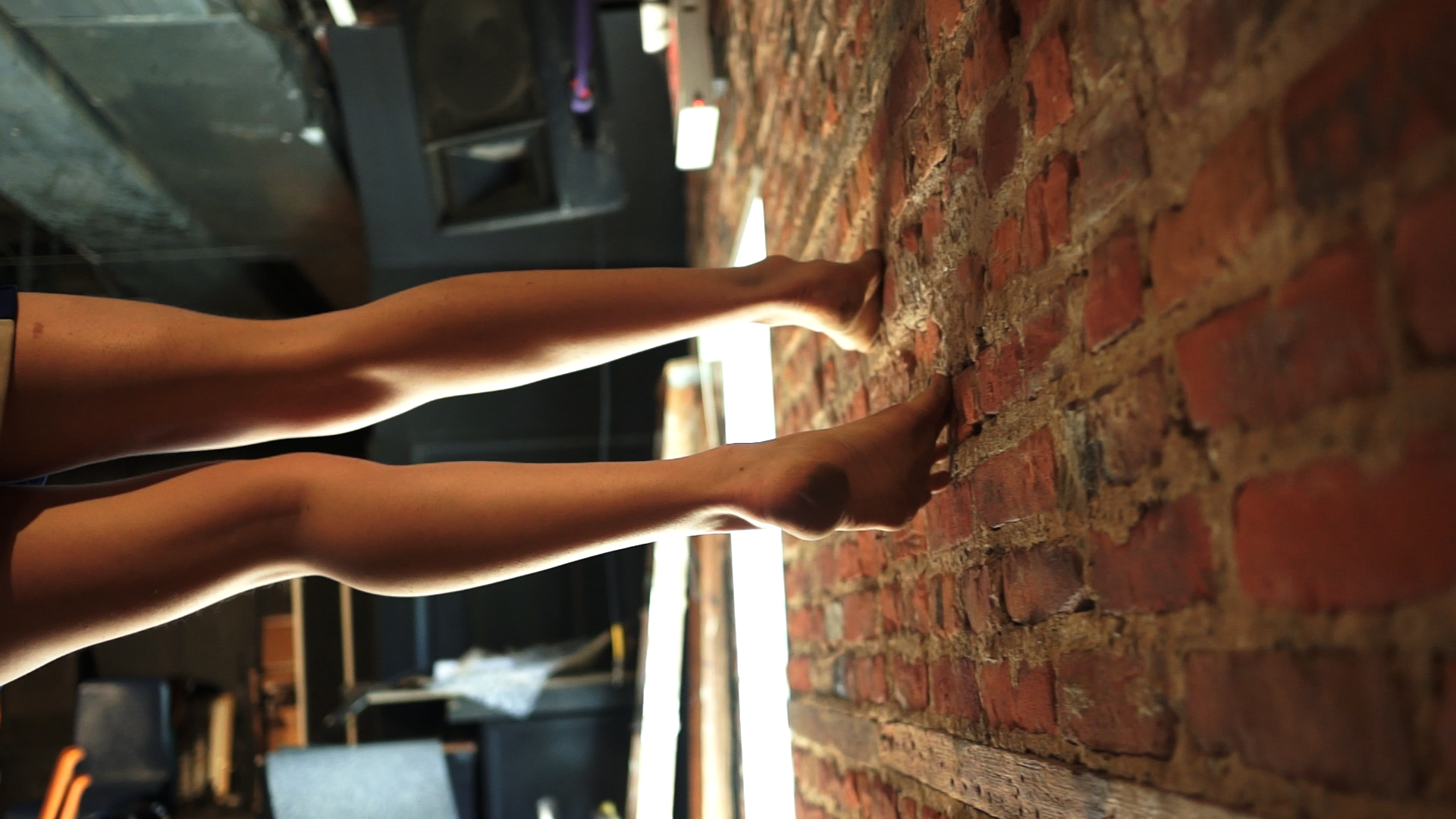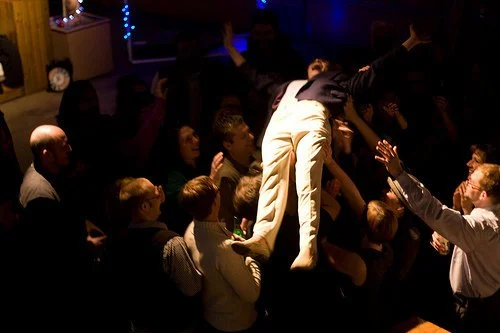Workshops, Lectures, and More
Still from Into the Hinterlands by Julia Yezbick
The Hinterlands offer a variety of single-day and multi-day workshops, as well as one-time lectures or talks, or longer-term teaching residencies. Topics range from strategies for creating original performances for professional artists to workshops on imaginative play and creativity geared for non-performers. These workshops, classes, and lectures bring together our place- and training-based practices, and draw from our lineages in Lecoq-based training, the actor- and research-oriented work of Jerzy Grotowski, traditional xiqu performance, and electronic music-making. If you’re in Detroit and want to get to know our work better, check out one of our trainings!
The Hinterlands have taught workshops at: Ko Festival, University of Vermont Burlington, University of North Carolina Charlotte, Kalamazoo College, University of Michigan Ann Arbor and Dearborn campuses, Hope College, Trinity College, Marquette University, Alverno College Economics Department, University of California Davis Classics Department, Muskingum University, Shanghai Theatre Academy, University of Pristina Theatre Department, Sichuan Vocational College of Art, College of Creative Studies, Cranbrook Photography Graduate Program, Milwaukee Public Schools, Mosaic Youth Theatre, Double Edge Theatre, and more. The Hinterlands lectures have been shared at Hochschule für Bildende Kunst (Hamburg, Germany); White Night (Chengdu, China); Zigong Cultural Palace (Zigong, China); University of Michigan Institute of Humanities; AICAD Social Practices Conference; Perform Midwest Conference; Network of Ensemble Theatres; Allied Media Conference; and Cranbrook Art Museum, among other spaces and contexts.
Workshops
The Enemy of My Enemy, Beijing photo by Renee Willoughby
Creating in The Hinterlands
This practical workshop provides an overview of devising methods used by The Hinterlands to create our layered, actor-driven work and referencing training practices in the lineage of Grotowski, Lecoq, and traditional Chinese performance (xiqu). Working off of shared source material for inspiration, students will participate in our process of using object, costume, and play to create images, environments, character, and scenes in ensemble; work with our strategies for embodied dramaturgy; and experience our approach to musicality and dynamic play. Ideal for acting/performance students or designers open to embodied practice.
Recommended for undergraduate - graduate students. Duration: a single 3-hour class - five 3-hour sessions
Still from Into the Hinterlands by Julia Yezbick
Building Blocks for Building Ensemble
The Hinterlands uses a variety of strategies for building ensemble among performers with different levels of performance experience, as well as across disciplines, and cultures. This workshop provides invaluable shared experience and embodied listening techniques to any kind of group working together, be it a collection of performers or co-workers in an office. Using physical and vocal approaches alike, this workshop introduces participants to our go-to platforms for play and improvisation.
Recommended for all ages. Duration: 1.5-hour class - semester-long course
Invisible Cities, Shanghai, photo by Eleni Zaharapoulos
Rhythm and Musicality
Rhythm and musicality are key to the construction of Hinterlands’ performances, and build off years of training in electronic music composition, traditional Chinese theatrical performance (xiqu), and Lecoq-based work. Working in short scenes and physical improvisations with everyday objects, students will learn to hear the music of each set of circumstances, actions, and figures. This workshop works best in a theatre space with access to theatrical flats and prop doors, but can be adapted to existing classroom conditions. Ideal for acting/performance students, dancers, directors.
Recommended for high school - graduate students. Duration: 1.5 to 4-hour class.
Isaac Newton is My DJ, photo by James Carlson
Games and Ferocious Play
How can we use existing and newly created games as a kind of preparation for performance (or other kinds of creatively demanding) work? This workshop uses a variety of ways of playing to explore group dynamics, playful ways to structure difficult tasks or scenes, and the myriad ways that we need to prepare ourselves for work. Ideal for acting/performance students, directors, or working groups of all kinds.
Recommended for all ages. Duration: 2-hour class to 5-hour series
Will You Miss Me?, photo by Milena Dabova
Sound and Fury: An Embodied Approach to Voice, Text, and Sound Design for the Theatre
The Hinterlands’ unique approach to voice, text, and sound design sees theatre as a place for radical sonic exploration. Using the voice, everyday objects, instruments, technology, and architecture, participants will take a holistic approach to sound design and performance. Workshop attendees will use movement, song, and text to break out of habitual vocal patterns in order to use the voice as a tool for sonic exploration, create soundscapes from everyday objects and actions, and explore the possibilities for integrating technology into performer-centric theatrical work. Ideal for acting/performance students, designers, directors, or musicians.
Recommended for undergraduate - graduate students. Duration: 3-hour class to three 3-hour sessions
Lectures
Take Out Take Down, photo by Kohler Arts Center
From Studio Practice to Public Practice
This lecture shares The Hinterlands approach to working in public spaces, from our Porous Borders Festival to our Take Out, Take Down project, to the on-going work at our neighborhood-embedded studio. We share how we started to regularly make work beyond the boundaries of theatre, and how this practice intersects with our highly detailed theatrical work.
1-1.5 hour lecture
Boomtown Bangtown Bust-town photo by Amy Weiks
Place-based Practices
From international projects designed to link communities and artists in two locations at the same time to the work that we create for and about our Detroit neighborhood, where we are is important to The Hinterlands’ creative practice. We share not only our history of work linked to place, but also the history of some of our greatest inspirations in this work, as well as strategies we’ve used to engage various publics.
1-1.5 hour lecture
The Radicalization Process, photo by Katherine Schleicher/Alverno Presents
From Research to Performance
This lecture-demonstration details the processes and evolution of our performance material from research to the stage, including integration of found text into performance work, adaptation of historical material and reenactment, song and performance, and our strategies for framing a performance in historical and cultural context. The lecture presents moments from four Hinterlands works: The Radicalization Process, Manifest Destiny (there was blood on the saddle), The Circuit, and Will You Miss Me?
1-1.5 hour lecture
Utopian Dinner photo by Gina Reichert
Making Utopias
Making Utopias is an iteration of The Hinterlands’ utopian dinner series: a laboratory for exploring contemporary social issues important to that particular group of diners at that particular moment. Part-lecture, part-conversation, part-meal, Making Utopias participants learn to use The Hinterlands question-driven training practice in a playful and practical manner, building bonds between participants while engaging in deep and meaningful conversations.
3 hour participatory lecture/conversation and meal.
Residencies
The Hinterlands are available for longer-term residency engagements. While in-residence, students will be immersed in The Hinterlands’ approach to performance-making while building performance skills and strategies for developing original or adapted work.
Residencies could include:
Creation of an original full-length performance
Creation of a performance adapted from existing text or historical
Mentorship of students in making original projects of their own design
Design and implementation of work in public spaces and/or within public spaces and/or with community
Research collaborations with students and faculty
Coaching a performance in production









